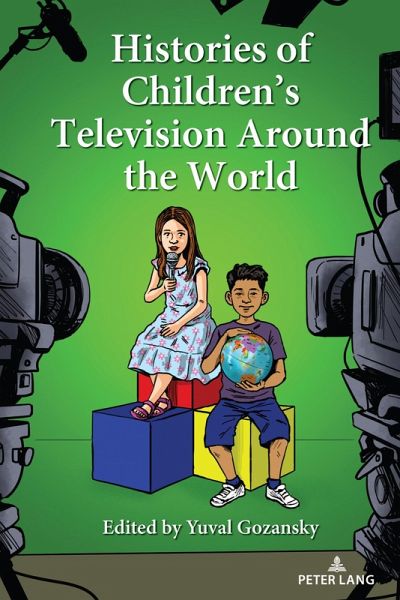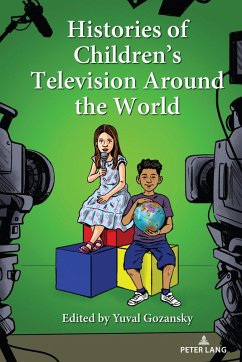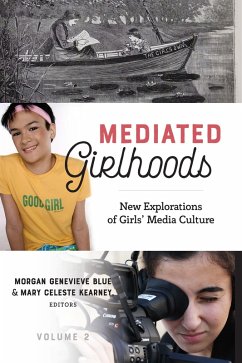
Histories of Children's Television Around the World (eBook, PDF)
Versandkostenfrei!
Sofort per Download lieferbar
Statt: 111,95 €**
35,95 €
inkl. MwSt.
**Preis der gedruckten Ausgabe (Gebundenes Buch)
Alle Infos zum eBook verschenkenWeitere Ausgaben:

PAYBACK Punkte
18 °P sammeln!
The book puts together for the first time valuable updated information that looks at children's television from its early days up to the current digital age, with its vast digital media offerings and availability. It offers new insights about a central children's media culture and focuses on non-Anglo-American television histories. Thus, readers interested in understanding past to present, local and global processes in children's television, would be able to find it in one book. Scholars, students, and professionals working in the field of children, as well as everyone concerned with children'...
The book puts together for the first time valuable updated information that looks at children's television from its early days up to the current digital age, with its vast digital media offerings and availability. It offers new insights about a central children's media culture and focuses on non-Anglo-American television histories. Thus, readers interested in understanding past to present, local and global processes in children's television, would be able to find it in one book. Scholars, students, and professionals working in the field of children, as well as everyone concerned with children's culture will find a great diversity of knowledge about the cultural, social, political, and economic contexts of programs with which they and their children have grown up.
This edited book is based on a collective effort of researchers and professionals dedicated to compiling the stories of children's television around the world. With 12 national chapters, the book includes historical accounts of children's television from the following countries: Australia, Brazil, Canada, China, Ecuador, Germany, India, Israel, Italy, Kenia, Netherlands, and the United States. It provides an exploration of each individual country, revealing striking similarities and differences which are discussed in depth in the final chapter.
Looking at the global field through local eyes--its main texts and active players (broadcasters, producers, and creators, as well as regulators and policy makers), their ideologies, financial prospects, and perceptions of childhood--offers a macro-level evaluation of an entire cultural field. This is a valuable picture, as it also provides a contextualized perspective for reflection in any micro-analysis of specific programs.
This edited book is based on a collective effort of researchers and professionals dedicated to compiling the stories of children's television around the world. With 12 national chapters, the book includes historical accounts of children's television from the following countries: Australia, Brazil, Canada, China, Ecuador, Germany, India, Israel, Italy, Kenia, Netherlands, and the United States. It provides an exploration of each individual country, revealing striking similarities and differences which are discussed in depth in the final chapter.
Looking at the global field through local eyes--its main texts and active players (broadcasters, producers, and creators, as well as regulators and policy makers), their ideologies, financial prospects, and perceptions of childhood--offers a macro-level evaluation of an entire cultural field. This is a valuable picture, as it also provides a contextualized perspective for reflection in any micro-analysis of specific programs.
Dieser Download kann aus rechtlichen Gründen nur mit Rechnungsadresse in A, D ausgeliefert werden.













